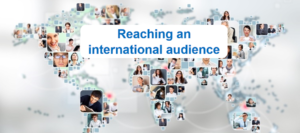
This is a cautionary tale that we hope will give you food for thought when you get an offer that is ‘too good to refuse’.
James was looking to expand his business into overseas markets and when he was researching the best place to start, came across an exhibition that was being held in Germany about five months ahead.
He contacted the organisers and enquired about the cost of a stand and was delighted to be given an excellent rate for a small space. The organisers explained that most of the stands were booked up well ahead of time, but they had had a cancellation.
James booked the stand and paid the fee, patting himself on the back at getting a bargain. He alerted his team that they would need to prepare their key products for display on the stand and then got on with the day-to-day work of running his company.
The marketing team suggested “Why don’t you get your business cards done in German too?”
He asked procurement to look into this. An internal email dropped into his inbox a few days later, from the assistant in the procurement department.
We have received a price for the translation of your business card (attached). However. the translation company would like to know if you want your card in English on one side and German on the other, or a separate card in German.
They have also provided us with their standard rates for translation of marketing flyers and brochures.
Do you plan to have the stand banners in English or German? We will need to order these soon for them to be ready to ship in time.
James contacted the organisers to ask if the stand signage would need to be in German. The reply came back ‘There is no need for your signs to be in German, there will be an international audience from all over Europe and most people will read English.’
James began to think about what he needed to do to impress this ‘international audience’. He called in his marketing team and they discussed the company’s goals for the exhibition. They wanted to get into the German market, but it could be an opportunity to reach other countries too.
After some discussion they decided to produce double-sided (English/other language) business cards for James and for one of the marketing team who would accompany him in German, French and Swedish. The core marketing flyers were also to be produced in these three languages in addition to English.
The more in-depth brochures would be only in English, as would all the stand signage. “After all, we are an English company,” James said.
After some discussion with the translation company, James also engaged an interpreter who spoke German and Swedish to attend the exhibition with them and help on the stand.
The exhibition was a success and, although most of the stand visitors managed OK in English, the material in other languages was very well received. With the interpreter assisting James came back with two big orders and three proposals to write.
The ability to communicate in the customers’ languages definitely tipped the balance.

